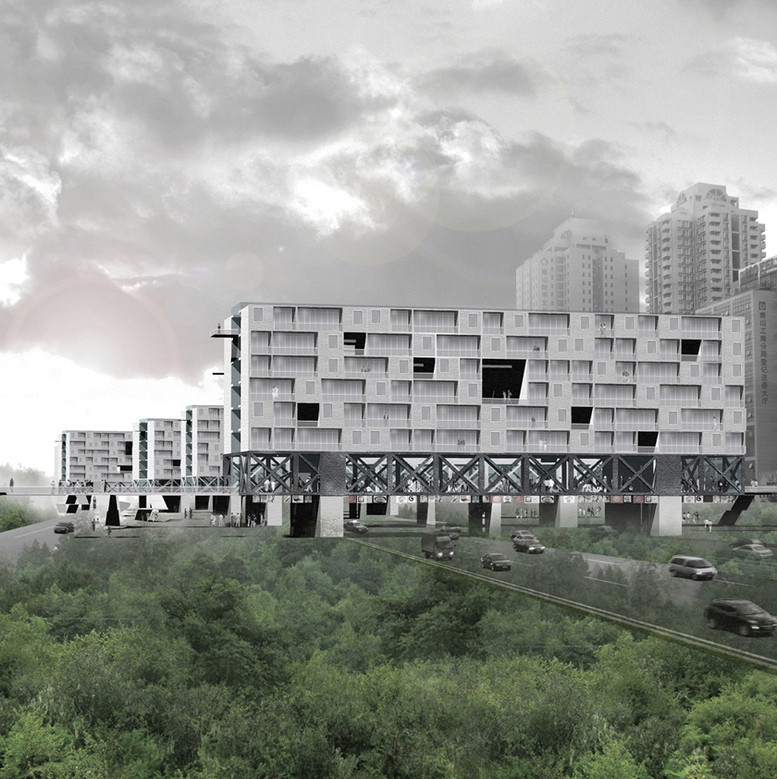
The Berlage Institute closed in 2012. But the Berlage Center for Advanced Studies in Architecture and Urban Design is open for business. And it is accepting students. Located at the Delft University of Technology, though they are independent entities, the new, re-visioned Berlage is not simply a continuation of the original Berlage. Instead, it has been reinvisioned to train students who already have either an M.Arch or a five-year degree.
The Berlage challenges students to understand the issues and principles surrounding the economy, the environment, and society as the route towards good architecture. History and cultural issues are therefore central to this Master’s of Science degree, as they should be. Because in today’s economy, the formula for success demands more than just an agility with computer programs. Students need to be able to exercise critical thinking skills. Unfortunately, many school studios fetishize style over substance but when their students graduate, they are ill-trained.
Rather, it is their firms who actually teach them how to draw a set of plans or elevations, interact practically not arrogantly with clients, and most importantly, how to develop a real project. This is because the idea of a starchitect dominates the educational and professional discourse. However, a talented designer cannot be made no matter how much instructors push students to be idealistic and often impractical in their school projects. But what can be taught, a key factor that every other professional school understands, is a solid foundation. Of skills and knowledge. Not everyone can attain a seat at the Supreme Court or be a world-famous neurosurgeon. But every single student attending law and medical school are trained in basic knowledge and skills. Architecture school too often neglects this. The new Berlage has shaped their curriculum to compensate for those common deficiencies.

Therefore the goal at The Berlage is to hone skills, refining them towards critically understanding architecture in a larger context. This curriculum is meant to challenge one’s intellectual skills as much as much as refine one’s production skills: “Study is conducted in an in-depth collaborative and experimental setting. This high-intensity, year-and-a-half-long, English-language program consists of three terms of design projects, design-related seminars and fieldwork, colloquia, and master classes. In addition, a series of public lectures and conferences complement the program.” That means that students begin by exercising their minds, reading and analyzing written analyses about history. This is built upon during the second term in which students study the economy, the environment, and society, meaning culture.
The approach teaches students how to think before they produce projects that are rooted not just in a student’s imagination. Seminars include master classes, some of which are open to the public, as well as lecture seminars. As is implied in the name, some master classes are a week-long, which means that while students are taught about a subject at an intense level, the opportunity for exposure to several subjects is also high given their relatively short length. Studios are not just production factories, but research-based studios, of which the Open Structures series is also a part. The last semester entails the final project, which will ideally involve fieldwork not simply Google.

Given the educational format, rich with seminars and master classes entertwined with research studios, the knowledge students gather is equally vast. In the past year alone, students investigated Tehran, Iran; Guangdong, China; Los Angeles, US; and the Nile Metropolitan Delta. Students and faculty together explore the intellectual meaning that affect the shape and development of individual projects as well as larger urban planning issues through such topics as politics, housing forms, and trade and happiness. These are explored through an intellectual structure that includes reading words as well as physical projects.
If this peaks your interest, here are the details. The program is a 18 month, 90-unit program which is divided into 30-unit semesters taught completely in English. What’s even better, the tuition is a lump-sum of €22,000 which needs to be paid prior to beginning the program. It is small, but not too small: for the upcoming school year, 36 slots were available. In return, these students will receive a Master’s of Science degree from Delft University of Technology.

